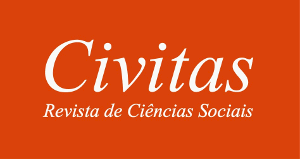Abstract:
After the First World War, we can observe in the Latin American society a strong transformation in the perception of the Europe as a civilization model. New movements in art and literature start to rethink the National Identities in Latin America Doutor em História pela Universidade Federal do Rio Grande do Sul (Ufrgs, Porto Alegre, RS), professor da Università Ca’ Foscari em Veneza, Itália, do PPG em Letras e do PPG em História da Universidade Federal do Espírito Santo (Ufes), em Vitória, ES, Brasil, e membro da direção da Associação Internacional Areia e da Associação Italiana de Brasilianistas <luis. beneduzi@unive.it>. O presente artigo foi apresentado em uma versão reduzida, e com outra ênfase narrativa, no Seminário Internacional Comparative area and transregional studies: aframework for the Baltic and the Mediterranean, Veneza, novembro de 2014. and in the whole subcontinent born a criticism against the importation of European civility concepts. This process can be deeply analyzed in Mistral’s writings that shows us the continental transformation through the Mediterranean metaphor: between a Latin space and a space of miscegenation. In Mistral’s narratives, we can notice two kinds of analytical movements between North and South relations: when the writer talks about the European contrasts, she talks also about those of the American continent. In this context, the Old World, or its Southern part, shares its Historical experience with the New World to justify the positive perception of the New Latin American men: Multiethnic.
Keywords:
Latin American literature; Miscegenation; Latin American thought; History and literature; Identidade
